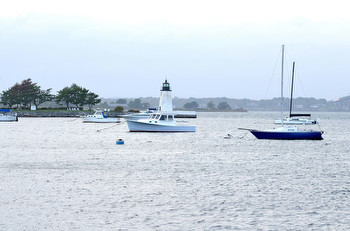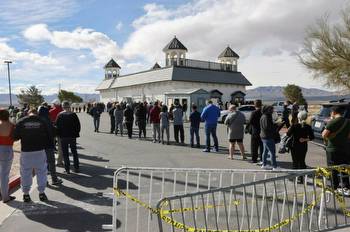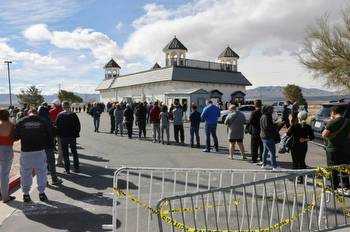Why legalising online casino is such a challenge

“Passing igaming legislation is hard!”
Ain’t that the truth. Gambling stakeholders and lawmakers enter every new legislative season full of enthusiasm and hope, yet nearly six years after the Professional and Amateur Sports Protection Act was overturned by the US Supreme Court, seven US jurisdictions are currently offering legal online casino compared to 31 offering online sports betting and 40 offering legal wagering overall.
And the 2024 legislative season has, so far, been disappointing from a legalisation standpoint. No US state is close to legalising online wagering, though bills remain alive (though languishing in committee) in several states, including Georgia, Minnesota, and Mississippi. Hopes for online gambling bills are dimming by the day.
The canned answers for what makes legalising online casino so hard are many and varied. Fear of addiction. Concerns that online casino will cannibalise brick-and-mortar venues. The belief states don’t need the money just yet.
But there very well may be a reason that the idea of online casino isn’t gaining traction. It’s one that has nothing to do with what’s going inside of state houses across the country.
“I don’t think it’s really a legislative issue at this point,” Howard Glaser, global head of government affairs and legislative counsel at Light & Wonder (pictured below), tells iGB. “It’s really a question of the market dynamics, and increasingly, if you are a land-based casino not named MGM or Caesars, you may think you won’t see a lot of upside to online gambling because of a belief that you cannot compete.
“Then you have the domination of DraftKings and FanDuel with 80% of market share (in both digital sports betting and casino). So, if you are a mid-sized or regional player, you have to ask yourself ‘What is my role or am I going to be left out?’”
Craig Billings, the CEO of Wynn Resorts, which just happens to be one of the “mid-sized or regional players” has a similar take, which he late last week.
Billings wrote that the focus on online casino expansion has been centered on total addressable market (TAM) and taxes, which he called a “narrow focus”. There is, Billings argues, much at stake for individual operators, who must place more value on their own market share, not TAM.
“There are almost 1,000 commercial and tribal casinos in the US,” Billings wrote. “How many of them can actually avail themselves of the often-touted benefits of an “omni-channel” strategy? 100? 150? The properties that might actually be able to compete with the digital native online gaming providers are those that are owned by the large national gaming operators. What about everyone else?”
Unity could be powerful
Glaser suggests that “everyone else” should band together to create a juggernaut that can compete. As it stands, the tech companies – DraftKings, FanDuel, and now Fanatics Betting & Gaming – dominate the online casino and sports betting spaces.
Caesars Entertainment, MGM, and PENN Entertainment have measurable, but not competitive market share. Companies such as Bally’s, bet365, SuperBook, and Tipico are also in game, as are unbranded commercial and tribal casinos across the country. While those companies may not need massive market share to define their success, they do need skin in the game.
“The reason we are not seeing strong political support across the country is that not all regional players think they can be involved,” Glaser says. “They need to figure out how to be in. Their fragmentation is the reason they don’t see an easy path to getting in.”
Glaser thinks that unity – among land-based casinos in a state, whether tribal or commercial – will be the ultimate key to passing online casino bills.
“If they decide they want to have a uniform product, they would have instant power,” Glaser explains.
“They would share platform, product, and revenue. That’s the obvious gaping hole in the market […] the fear that regional and tribal players have that they are going to be frozen out of the marketplace. But that is not a forever situation.”
Labor unions are another concern
Billings also offered some other potential potholes on the road to legalisation. He wrote that labour unions could play a critical role in defining what online casino looks like in any state.
Successful online casino operations employ only a fraction of the number of employees that successful land-based casinos employ. And ultimately, those not at the top of the online gaming heap will thin out their ranks. Unions, in turn, will push back.
It seems unlikely that online gambling will gain much traction until the core issues outlined are, if not solved, at least addressed. But the issue is a topic in state houses across the country, whether or not bills are moving forward.
Fanatics Betting and Gaming head of government affairs Brandt Iden – author of the opening quote – says that the industry must also focus on education.
“We go to talk about igaming and they think we are talking about video games,” he said during a panel at iGaming Next in New York 6 March. “I start with [using the phrase] ‘internet casino’. You have to call this what it is, otherwise you have lawmakers that don’t know what you’re talking about. And then you have to lead with consumer protections.”
Maryland and Maine this year’s last igaming hopes?
Iden, the former Michigan representative who successfully got legal sports betting and igaming passed as a package in 2019, and Shawn Fluharty, the West Virginia delegate who did the same in 2018, often find themselves at the forefront of the conversation.
Neither is sure online casino will gain traction much of anywhere in 2024. Lawmakers in Maryland are at least making a Herculean effort that includes a town-hall meeting to take an in-depth look at the current proposal on 15 March at Morgan State. It marks one of, if not the first, public education sessions around online casino not inside a capital building anywhere in the US.
The only other state in which legal online casino is actively being discussed is Maine. There the state’s four tribes were gifted online gambling in a comprehensive gambling bill that Gov. Janet Mills signed in May 2022.
The current iteration of the framework proposal would give the tribes exclusivity, like they have for sports betting. The state’s two brick-and-mortar casinos run by Churchill Downs, and PENN Entertainment, would be banned from offering digital gaming. The key bill in that package is in the state’s Joint Standing Committee on Veterans and Legal Affairs, but doesn’t have a hearing date.
Online casino is a tax cash cow
At the start of 2024, there was hope that multiple states – Illinois, Indiana, Maryland, New Hampshire, and New York – might legalise igaming. But two months into the legislative season, those hopes have been mostly crushed. While Bally’s launched its Rhode Island online casino platform last week, four-plus years after debuting online sports betting, there is little else to celebrate.
On the face of it, legal igaming seems like a slam dunk. The tax revenue available to states through online casino versus sports betting is staggering. In Connecticut, in 2023, digital casino tax revenue was $60.2m, compared to $19.5m for online sports betting, according to databases maintained by US Bets and Sports Handle.
In the biggest state with legal online casino and sports betting, Pennsylvania took in $490.4m in casino gaming tax revenue in 2023, as compared to $155.9m in wagering tax revenue. And in West Virginia, which legalised both in 2018, the comparison is even more stunning – digital casino tax revenue was five times online sports betting revenue.
The fact that it is an election year may be relevant in some situations. Legalising online casino – or sports betting, for that matter – likely doesn’t move the needle with voters compared to other issues. But if constituents, whether they be individuals or corporations, want something, politicians respond.
“There was a rush to pass sports betting,” Fluharty said in New York last week. “And I feel like lawmakers thought there would be a domino effect and there was in some states. But what do lawmakers want? To get reelected, so if they feel like the people they rep want it, they will do it.”
But if those people don’t want it – or aren’t sure – expect the logjam to continue.































